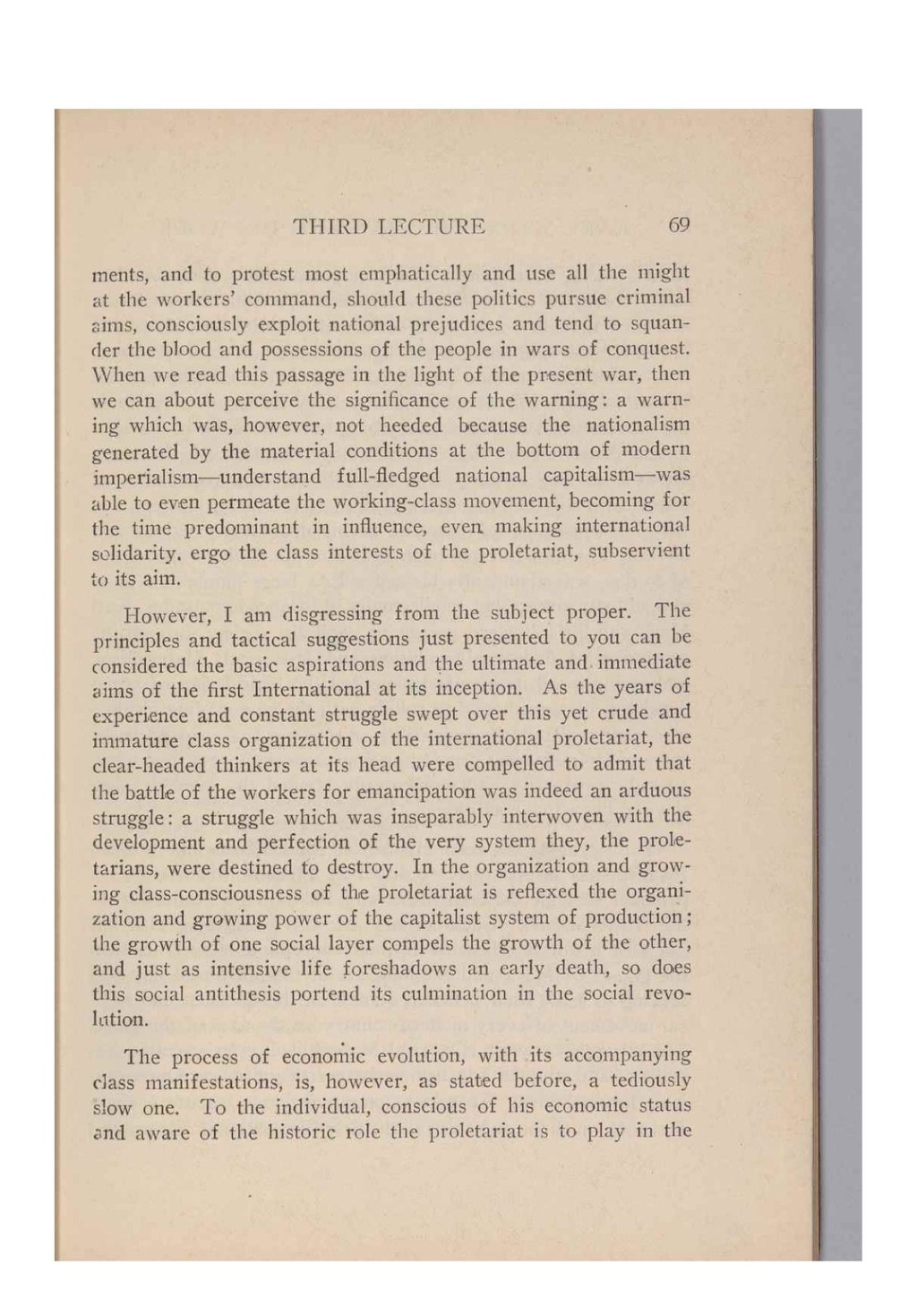ments, and to protest most emphatically and use all the might at the workers' command, should these politics pursue criminal aims, consciously exploit national prejudices and tend to squander the blood and possessions of the people in wars of conquest. When we read this passage in the light of the present war, then we can about perceive the significance of the warning: a warning which was, however, not heeded because the nationalism generated by the material conditions at the bottom of modern imperialism—understand full-fledged national capitalism—was able to even permeate the working-class movement, becoming for the time predominant in influence, even making international solidarity, ergo the class interests of the proletariat, subservient to its aim.
However, I am disgressing from the subject proper. The principles and tactical suggestions just presented to you can be considered the basic aspirations and the ultimate and immediate aims of the first International at its inception. As the years of experience and constant struggle swept over this yet crude and immature class organization of the international proletariat, the clear-headed thinkers at its head were compelled to admit that the battle of the workers for emancipation was indeed an arduous struggle: a struggle which was inseparably interwoven with the development and perfection of the very system they, the proletarians, were destined to destroy. In the organization and growing class-consciousness of the proletariat is reflexed the organization and growing power of the capitalist system of production; the growth of one social layer compels the growth of the other, and just as intensive life foreshadows an early death, so does this social antithesis portend its culmination in the social revolution.
The process of economic evolution, with its accompanying class manifestations, is, however, as stated before, a tediously slow one. To the individual, conscious of his economic status and aware of the historic role the proletariat is to play in the
